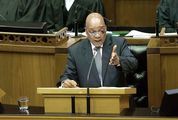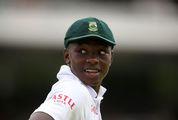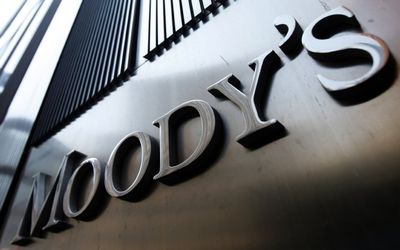ON TUESDAY rating agency Moody’s Investors Service released an in-depth report on SA, revising down its growth forecast to just 0.5% for this year and 1.5% for next year, citing the severe drought and rand weakness as key risks to growth.
It’s not just the bleakness that matters. It matters that it comes from Moody’s. SA’s ratings by rivals Standard & Poor’s and Fitch are on the last rung of the investment grade band, so on the verge of a downgrade to junk status. But Moody’s is still two notches above junk — though it put SA on negative outlook in December, and Tuesday’s report is not a good sign.
If Moody’s is turning we could be in real trouble. But its report is striking, too, for its emphasis on the drought. Think back to last week’s state of the nation address. It absolutely did mention the risks posed by SA’s low economic growth rate, and the risk of SA losing its investment grade status. But the drought didn’t rate even a mention. Farming featured only because President Jacob Zuma chose to re-emphasise the government’s commitment to land reform, including such investor-unfriendly measures as prohibiting foreign ownership of land.
That was just one reflection of the kind of schizophrenia about the economy that was there even in an address that did more than any of Zuma’s previous speeches to try to explain to the nation, in fairly simple language, why SA urgently needs to do something about growing its economy, and why credit ratings matter. It was a speech as striking for what it didn’t say as what it did. And while it said many of the right things about growth and investment, it undermined these with some conflicting messages.
Importantly, the president did zero in on some points the government believes would "make a difference" — working with business to turn the economy around and make it attractive to investors, addressing concerns about the performance of state-owned enterprises, and committing to fiscal tightening. Missing, though, were big, clear signals of the seriousness of the government’s intent.
So while Zuma spoke of the need for state-owned companies to be financially sound, and properly governed and managed, he stopped short of committing to putting professionals with business experience on their boards — there was no mention of South African Airways (SAA).
He spoke, crucially, of an undertaking to spend public funds wisely and cut wasteful expenditure. But the cost-cutting measures he cited were essentially small beer at best. One was about curtailing overseas trips and tightening up on catering and entertainment — measures Finance Minister Pravin Gordhan announced in his 2013 budget speech, apparently to little effect. The other proposal was the hoary old idea of cutting two capital cities to one.
But the president did not talk about the two largest items that get in the way of curbing government spending: the ballooning public sector wage bill and the inflated costs of public sector procurement, which result from corruption, fraud or simple inefficiency. Indeed, corruption was another word that wasn’t mentioned.
In this and several other respects, Zuma kicked the can down the road to next week’s budget speech. He did lay the basis for a degree of fiscal belt tightening, with folksy but useful comments about how we will go through a difficult period but when the economy recovers, "we’ll be proud of ourselves for having done the right thing".
But his omissions will make it no easier for Gordhan to fight the battles he needs to fight to manage the fiscal risks — Zuma did not use the speech to give him the political authority to sort out the SAA mess, nor to resolve the conflict with the South African Revenue Service. It didn’t do anything to strengthen his hand on reining in public sector pay. Nor did it lend him any particular authority in the broader economic policy space, over and above the narrow space of fiscal policy.
In the end, it fell short of making growth a priority.
That leaves a heavy burden of expectations on next week’s budget speech. And it leaves open whether SA can indeed avert a downgrade to junk status. All three rating agencies have made it clear that they are worried both about SA’s economic growth rate and about its fiscal metrics.
At least Zuma recognised this. He could have done worse. But he should have done a lot better.
• Joffe is editor at large.

















Change: -0.36%
Change: -0.29%
Change: 1.81%
Change: -0.81%
Change: -1.12%
Data supplied by Profile Data
Change: -0.97%
Change: -0.03%
Change: -0.36%
Change: 0.00%
Change: -0.20%
Data supplied by Profile Data
Change: -0.59%
Change: -0.37%
Change: -0.77%
Change: -0.15%
Change: -1.10%
Data supplied by Profile Data
Change: 1.04%
Change: -0.11%
Change: 0.65%
Change: -1.96%
Change: -1.50%
Data supplied by Profile Data